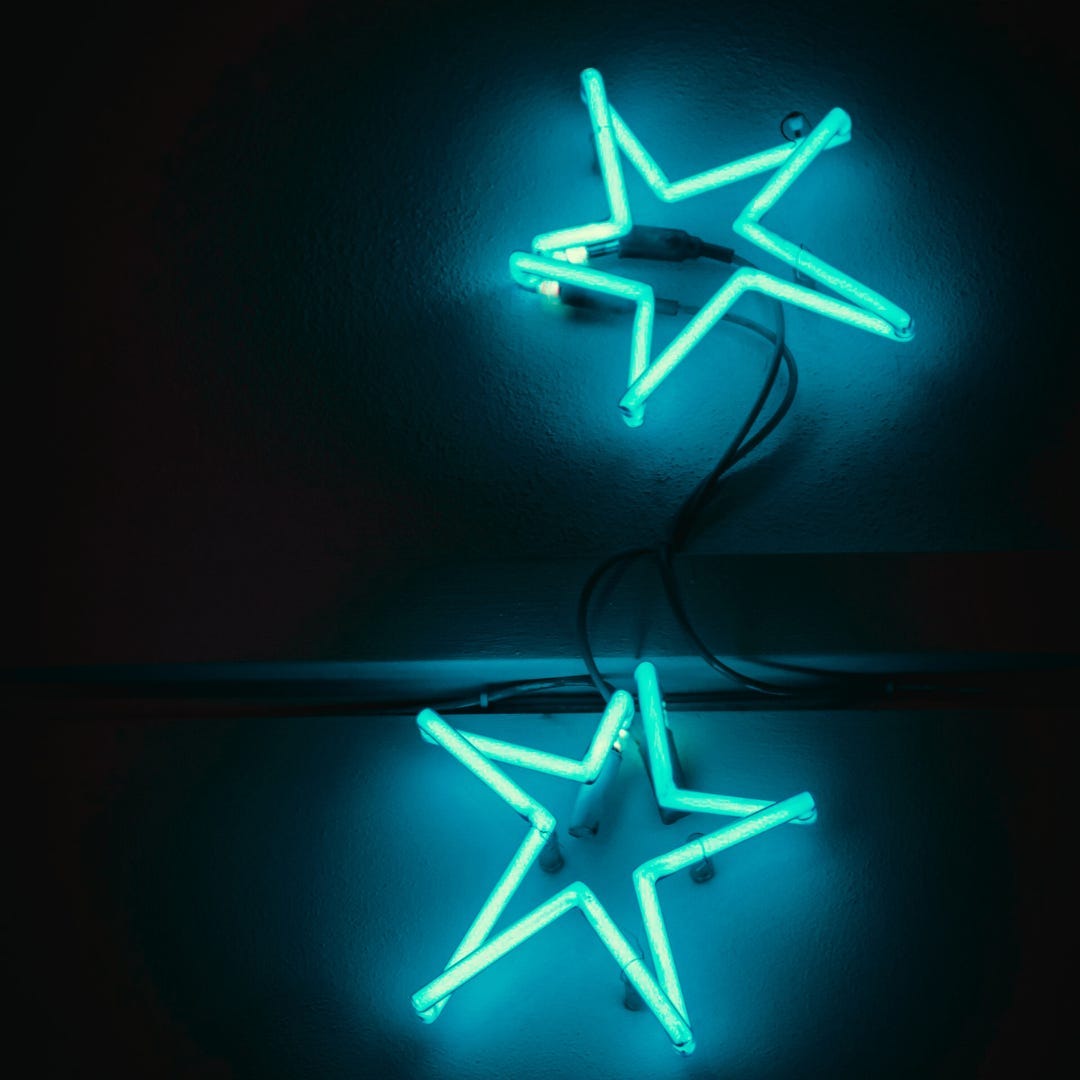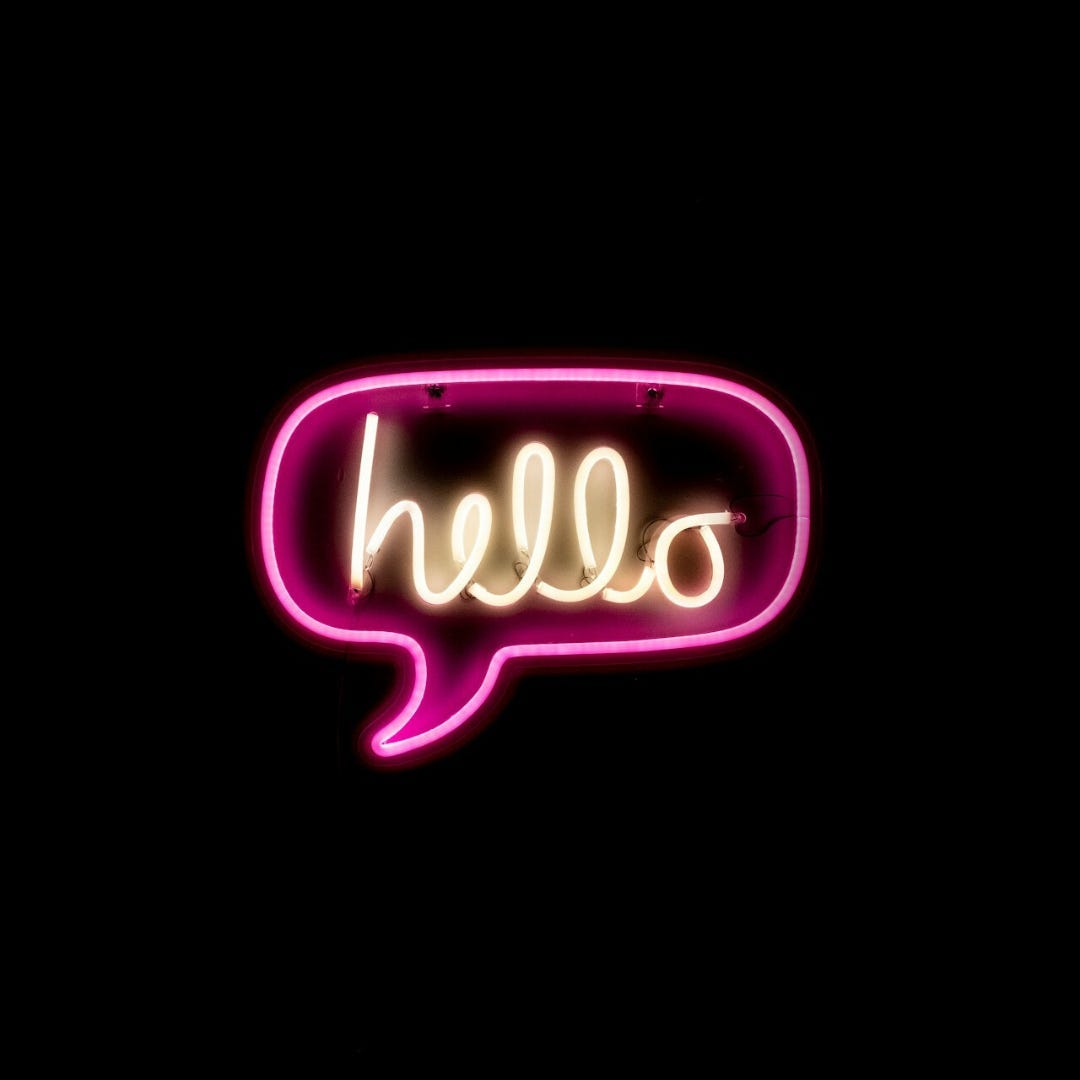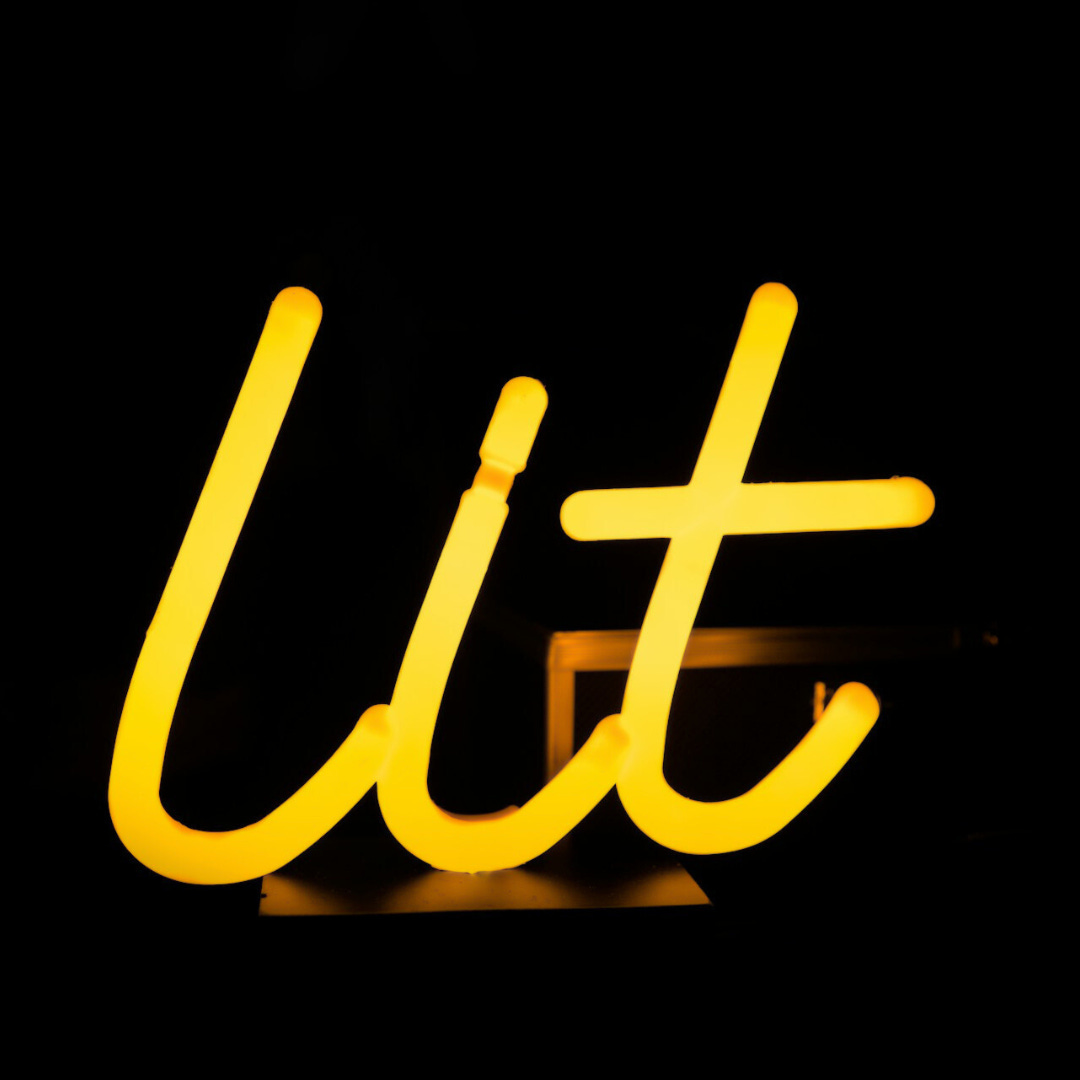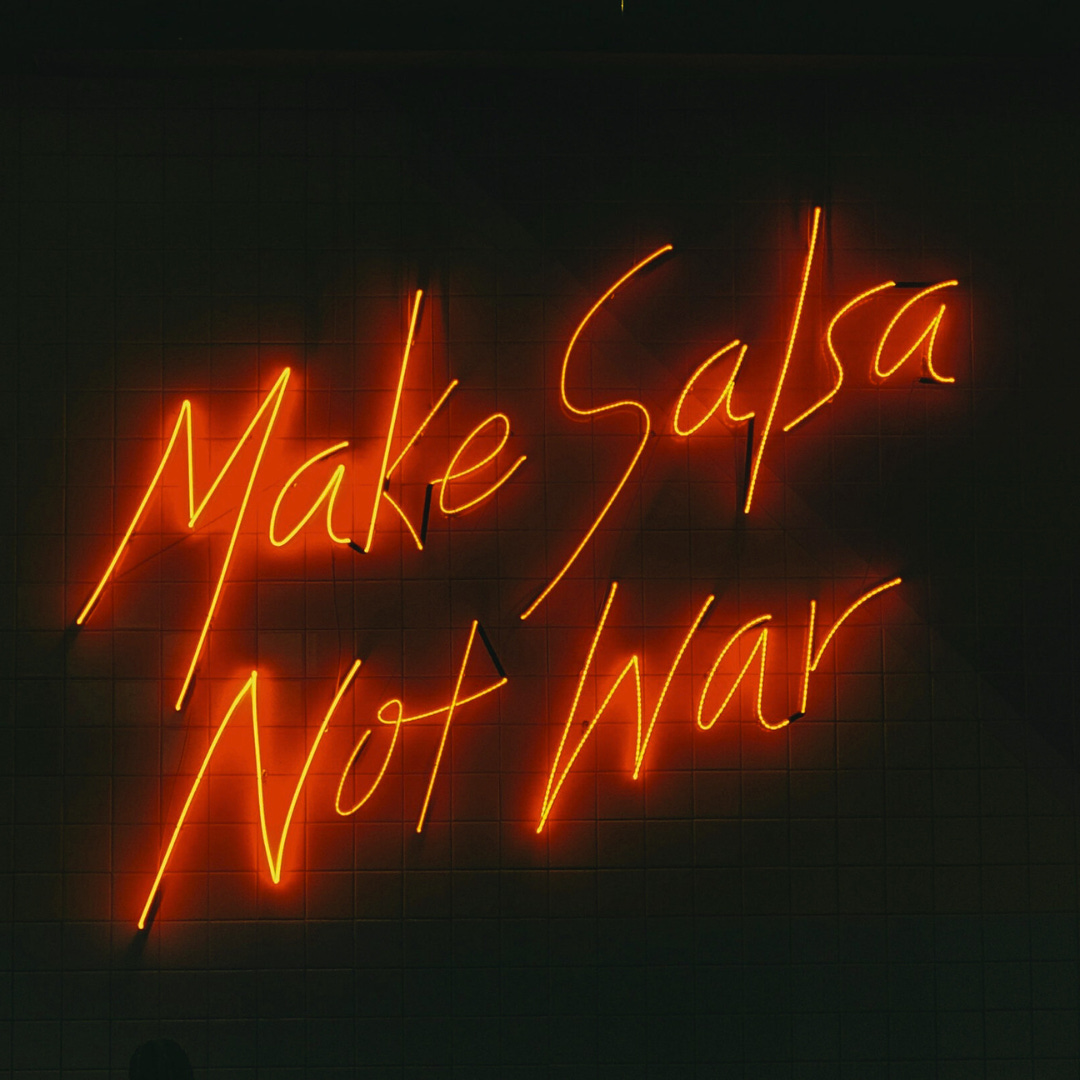
Amici mei,1 my dear friends, have you seen one? A Bright Spot? Magical creatures, aren’t they? I’ve met them, even in the darkest of times I ever lived through. All the easier in such moments to pick up their trail. They are, after all, made of light.
Perhaps, you have already befriended them and are talking out loud to this letter: “Of course, I know them, Azuli! I met one just the other day, the other week, last year…”
Or maybe you have never heard of them, and here you are, wide-eyed and curious…. unless you are one of those disbelievers that rolls their eyes and retorts: “Bright Spots! Where? In what corner of this struggle?”
“Ahhh, dear one,” I would answer you, “everywhere.”
Let me show you how to find them.

Now, Bright Spots come in many shapes and sizes, which can make them difficult to spot. They could appear as a simple act of kindness from a stranger… a species, alive and well though long-thought extinct… a successful experiment in debt relief that has freed ordinary people’s lives… a breakthrough in medicine… an art form born in an abandoned place that, like hip-hop, gives the world a universal language…
The ways they can appear go on and on, but other things about them are exactly the same.
For instance, they grow where the Trouble is— struggling city neighborhoods, bankrupt farmlands, depressed suburban towns, fragile natural environments, troubled nations, and even a whole world on edge. So in order to find them, you must be willing to look into the Bleak without letting Despair– that most dangerous of monsters– swallow you whole.
And, te lo dico mo’,2— I’m telling you now, amici— Despair wants nothing more than to swallow you whole! So, take your courage with you.
In this treacherous place, you carry one very special tool that draws the Bright Spots out– questions. The right, magical questions. Into the Dark, call out: “Where are the silver linings!? What is working well enough, even though it’s not well cared for?... Who out here is beating the odds!!?...3”
Then you will see a glint of light. Follow it. No matter wherever it leads. Under debris, through tangles of overgrown weeds, and across rundown lots, track it, then suddenly a small paradise will open up. There you will find them— bright, shining, and going about their business.
Be sure to approach gently as Bright Spots are often quite unsure of human beings. Say hello at a distance and explain a bit about what’s brought you here. Then stay still and let a Bright Spot come close and give you a sniff.
If they decide they like you (and I’m sure they will like you), they’ll flop at your side and tell you their story. How they came to be… why they can survive in such Trouble… the many reasons you have to hope…
They might even give you the secret of how they create their light.

Mo’, sentimi bene4— now, listen to me close. Bright Spots don’t reveal themselves so we can brag about it or pretend all is well. No. Nor is the Bright Spot here to band-aid our brokenheartedness, so we can then look for another, then another, then another to do the same for us.
No. Quite the opposite. They put their secrets in our hands so that we will use their gift. If we succeed, then we too help drive the Trouble out.
We can grow the light a Bright Spot has given us in countless ways. Tell a Bright Spot’s story to another. Apply the secret of their light to a problem in our neighborhood. Join a group working with their own Bright Spots’ secrets. Make a little bit of its hopeful behavior a part of our own….
All the ways you can imagine– big and small– count. Even if Life is so heavily burdened that all we can do is tell ourselves the Bright Spot’s story so that Hope stays alive in our own hearts.

Now, you should know some experts disagree with me. They say spotting Bright Spots is difficult, not because they hide, but because our own human bias disguises them. They rightly point out that, deep in our nature, we humans favor the negative for safety’s sake.
Such things worked well enough in our ancient cave days battling saber-toothed animals. Today when our minds sense danger, they remember the caves and advise us, “Better to assume the worst. That sound could be a fanged predator or our untrustworthy neighbor. Stay in the cave, weapon in hand, just in case.”
Our natural negativity kept our ancestors safe enough to bring children into the world. Then it kept those children safe enough to bring more children into the world, ultimately leading to your precious existence. So do not curse our inborn pessimism.
Simply keep in mind this protective bias has weak points.
Against our landscape full of uncertainty, its flaws play out in any number of ways. Some shut the larger world out and retreat to their personal caves. Others throw their hands up and cry out, “Hopeless!” A third type confronts it head-on, armed to the teeth with a hellfire of criticism but little supply of solutions.
Mo’, facimoci chiaro5—let’s get a few things straight. At times we must rest in our caves and soothe our brokenheartedness. We must also use our critical eye– to think for ourselves, clue into danger, and discern lies from the truth.
But we mustn’t go on endlessly about all the Trouble then step off our soap box, thinking our job is done. No. This ends the conversation in the very place it should begin– the place where we figure out what to do.
Our critical eye is a master at breaking things down, but it is not so good at building things up. And, amici mei, we must build things up. We cannot move into a better future if no better future has been built!
But what do we build? How should we create? How do we know our suggestions will work?
This is where the Bright Spots step in with their clues and proven possibilities. They remind us that we are not starting from scratch. “It could work a bit like the way I do,” they whisper to us. “Come this way, I’ll show you more.”
Then we lean in that direction like a flower turning their face towards the Sun.
Now, a few final points before you head out on your Bright Spot adventure.
🔹Look where you live— your city, town, or street. If all is still bleak, search inside your own home. Yes, it’s true! Bright Spots can live, like little house fairies, right alongside you!
🔹Sharpen your tracking skills with the stories of Bright Spots others have found. Positive news outlets, problem-solving programs, awe-inspiring experiments, and inspiring examples from history are excellent ways to hone our abilities.
🔹Carry a shield. Use it to protect yourself from the onslaught of news, political talk, and depictions of bleak futures. A good dose of each is healthy, but too much will attract Despair. So, statevi attienti6— be careful, amici. Get your fill and guard yourself from the rest.
Allora, via7— now, off you go! Out into the Wilds on your Bright Spot adventure! Remember your brave curiosity, your shield, and your backpack full of magical questions.
I cannot wait to hear about your discoveries!
To get us started, another Bright Spot story is shining below in the comments. This one I found in the crumbling terrain of the Great ‘08 Recession, a time of financial collapse and deep uncertainty for us ordinary people.
Come, add your own Bright Spot— however large or small it may seem. The story of how your neighbors watch each other’s backs… or that one about how your church keeps children fed… maybe that time your town made more room for the bees… Yes, tell us all a story.
Let’s grow the light.
My friends. Sicilian & Southern Italian languages. Rough Pronunciation: ah-MEE-chee MAH-ee
I’m telling you now (Brooklynese, Sicilian & Napolitano base). Rough Pronunciation: Teh loh DEE-koh MOH
Questions as a tracking method comes from the excellent dive into HopePunk from Future Ecologies, which you should check out for more Bright Spot inspo.
MLA Reference: Scales of Change: Chapter 1: Hope Punk. (n.d.). Future Ecologies. https://www.futureecologies.net/listen/soc-ch-1 (Min 20-24)
Now, listen to me close (Brooklynese). Rough Pronunciation: MOH, SEN-tee-mee BEH-neh
Now, let’s make things clear/let’s be clear (Brooklynese). This is fun one! Rough Pronunciation: MOH, fah-CHEE-moh-chee KEY-AH-roh
Be careful (Brooklynese, Sicilian & Calabrese base). Rough Pronunciation: STAH-teh-vee ah-TEN-tee
Now, off you go! (Brooklynese/Standard Italian). Rough Pronunciation: AHL-loh-rah, VEE-ah






“Well, here I am,” a Bright Spot said to me in an unrushed Southern drawl when I was traveling through the Southeastern US corridor, going from small town to small town.
“I’ve been here since the ‘08 Recession, and I haven’t been hiding. No one bothered to look! I’ve been hanging with the co-ops for years. Farms, electrical companies, credit unions. I got cousins in the cities and even a few that spread across the nation. We all held up better than regular businesses because we shared the risk and the reward.
“Don’t mistake it, it was tough, but we made out alright, better than a lot of others. Why, I just don’t understand why people don’t work with us more often. After all, we stayed strong, kept people in good jobs. And if you don’t mind me saying it— we’re usually a bit more honest then the ones who got us into that trouble. Would you tell people about us?”
And so here I am, amici mei, doing just that.
(Reference: https://bit.ly/coopperformincriss)